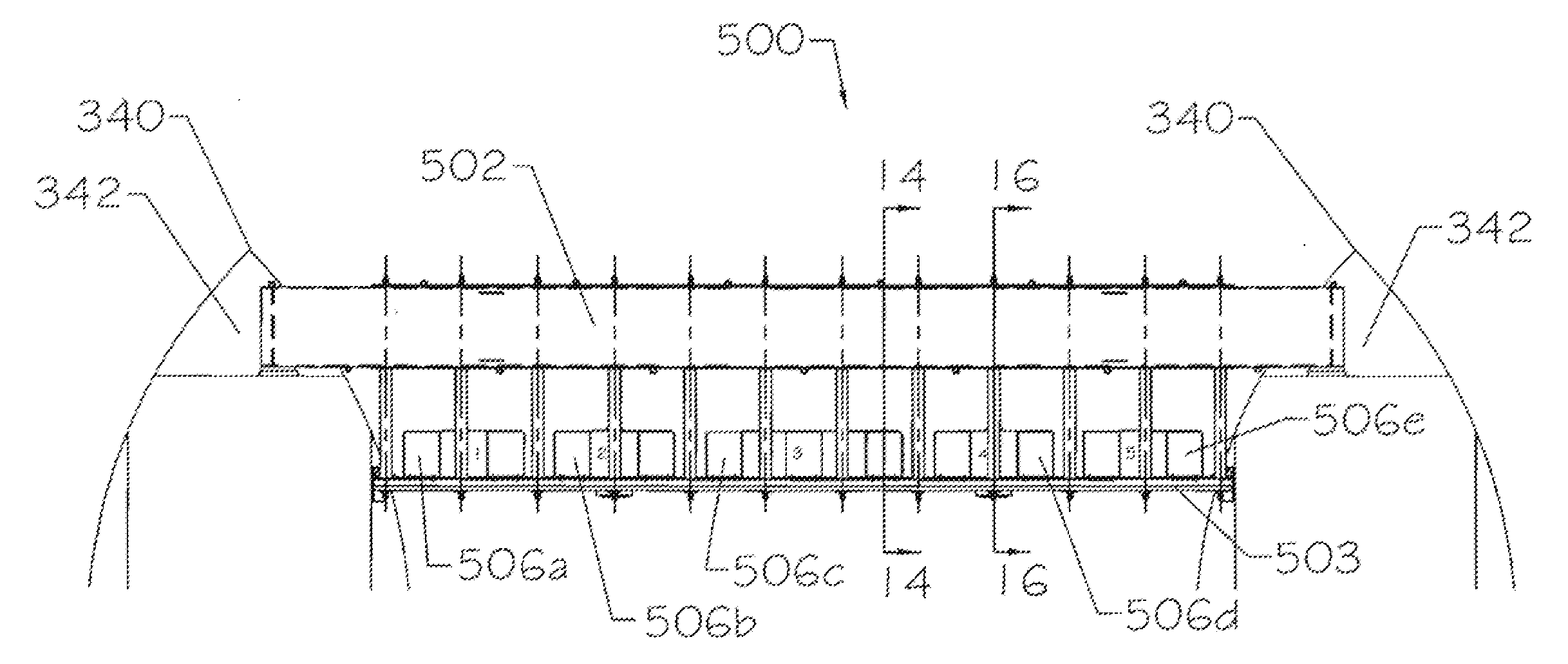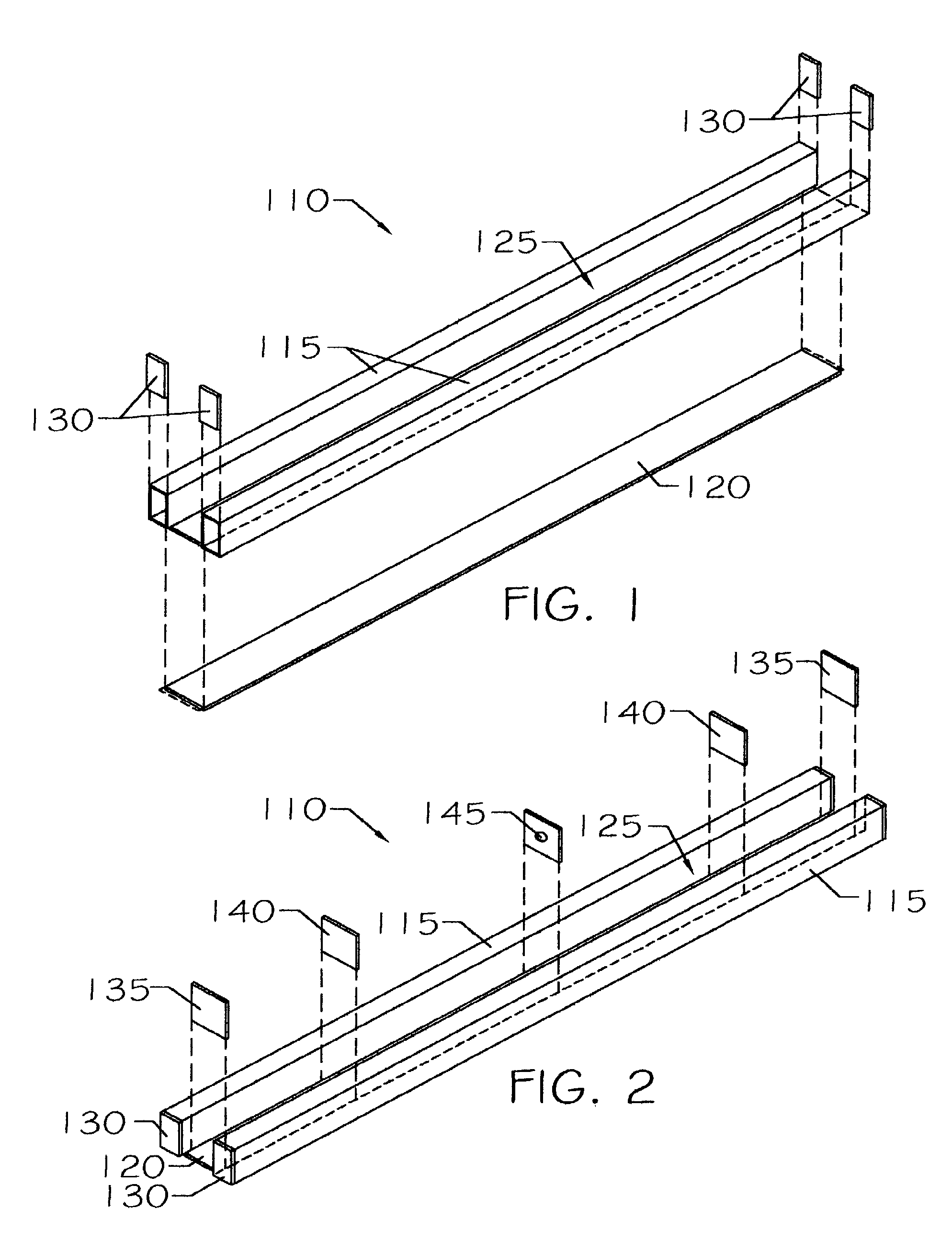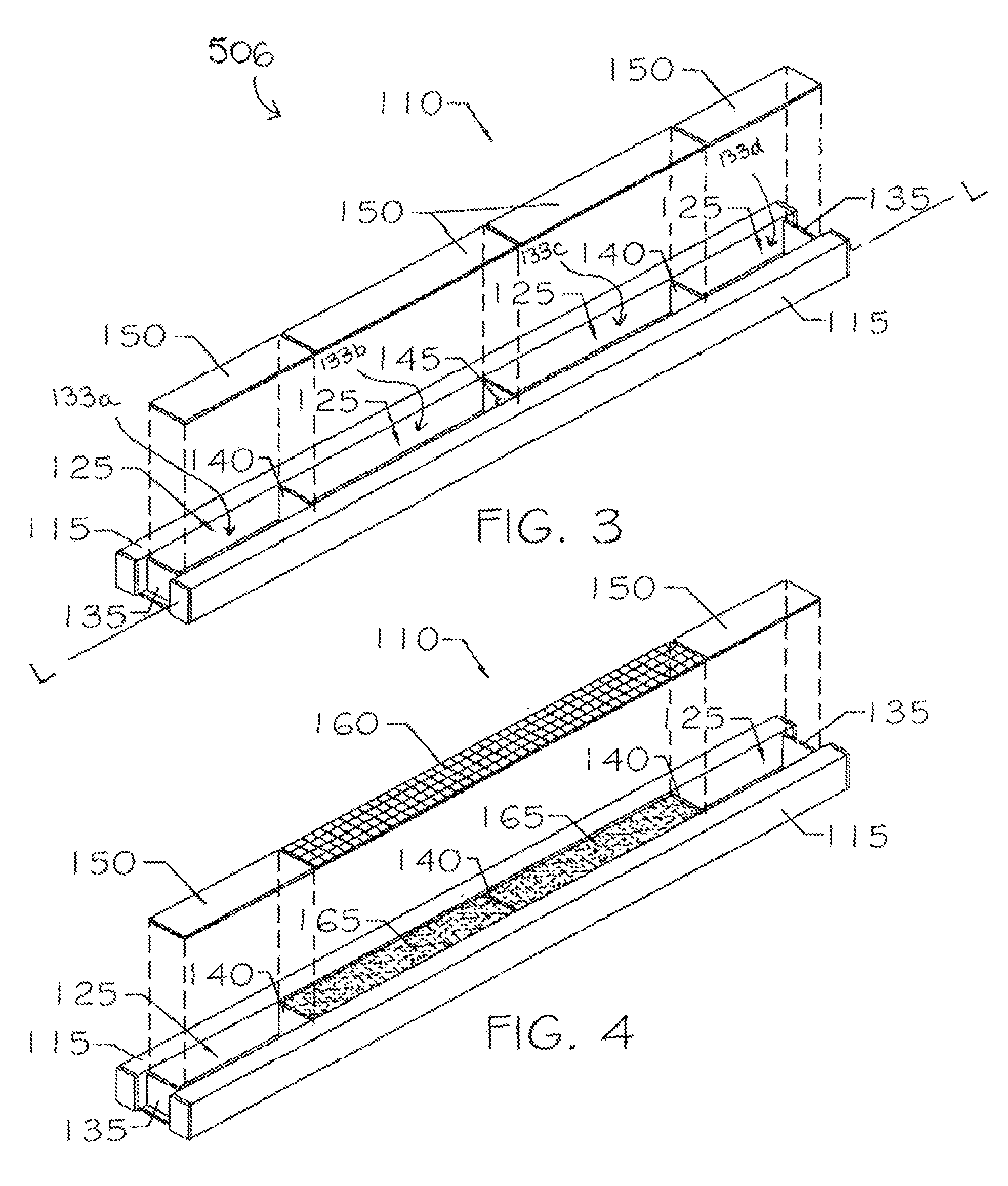Floatable caisson, segmental bulkhead assembly and method
a segmental, bulkhead technology, applied in caissons, marine site engineering, construction, etc., can solve the problems of increased manufacturing cost, difficult maneuverability and operation, and high maintenance cost, and achieve the effect of increasing the buoyancy of the bulkhead assembly
- Summary
- Abstract
- Description
- Claims
- Application Information
AI Technical Summary
Benefits of technology
Problems solved by technology
Method used
Image
Examples
Embodiment Construction
[0048] The present invention is directed to a floatable caisson member for use with a bulkhead assembly for dry isolation of water passages of a dam. In one embodiment of the invention, the floatable caisson member includes at least two hollow, rectangular section, HSS steel tubes made from flat sheet steel, each tube sealed at each end by a tube end plate to form at least two sealed chambers. A side plate is secured to the at least two steel tubes, with the at least two steel tubes and the side plate defining at least one intermediate space. At least one pair of intermediate space end plates is secured between adjacent tubes of the at least two tubes. At least one intermediate chamber plate is secured to the at least two steel tubes opposite the side plate. The intermediate chamber plate seals at least a portion of the at least one intermediate space to create at least another sealed chamber. At least one sealed chamber includes at least one sealable aperture to selectively flood t...
PUM
 Login to View More
Login to View More Abstract
Description
Claims
Application Information
 Login to View More
Login to View More - R&D
- Intellectual Property
- Life Sciences
- Materials
- Tech Scout
- Unparalleled Data Quality
- Higher Quality Content
- 60% Fewer Hallucinations
Browse by: Latest US Patents, China's latest patents, Technical Efficacy Thesaurus, Application Domain, Technology Topic, Popular Technical Reports.
© 2025 PatSnap. All rights reserved.Legal|Privacy policy|Modern Slavery Act Transparency Statement|Sitemap|About US| Contact US: help@patsnap.com



